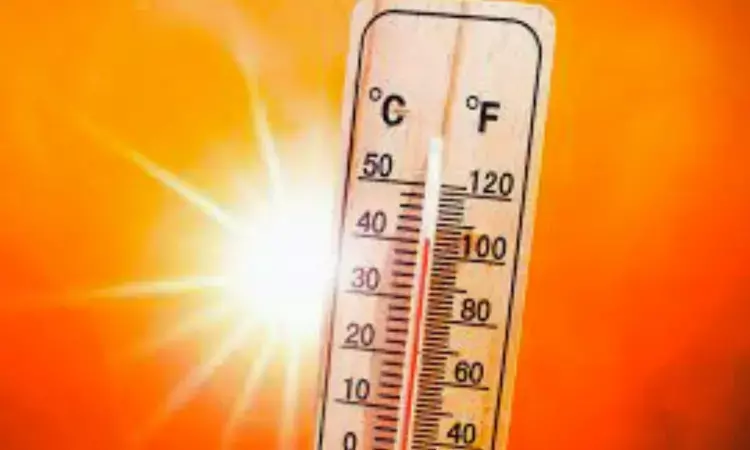- Home
- Medical news & Guidelines
- Anesthesiology
- Cardiology and CTVS
- Critical Care
- Dentistry
- Dermatology
- Diabetes and Endocrinology
- ENT
- Gastroenterology
- Medicine
- Nephrology
- Neurology
- Obstretics-Gynaecology
- Oncology
- Ophthalmology
- Orthopaedics
- Pediatrics-Neonatology
- Psychiatry
- Pulmonology
- Radiology
- Surgery
- Urology
- Laboratory Medicine
- Diet
- Nursing
- Paramedical
- Physiotherapy
- Health news
- Fact Check
- Bone Health Fact Check
- Brain Health Fact Check
- Cancer Related Fact Check
- Child Care Fact Check
- Dental and oral health fact check
- Diabetes and metabolic health fact check
- Diet and Nutrition Fact Check
- Eye and ENT Care Fact Check
- Fitness fact check
- Gut health fact check
- Heart health fact check
- Kidney health fact check
- Medical education fact check
- Men's health fact check
- Respiratory fact check
- Skin and hair care fact check
- Vaccine and Immunization fact check
- Women's health fact check
- AYUSH
- State News
- Andaman and Nicobar Islands
- Andhra Pradesh
- Arunachal Pradesh
- Assam
- Bihar
- Chandigarh
- Chattisgarh
- Dadra and Nagar Haveli
- Daman and Diu
- Delhi
- Goa
- Gujarat
- Haryana
- Himachal Pradesh
- Jammu & Kashmir
- Jharkhand
- Karnataka
- Kerala
- Ladakh
- Lakshadweep
- Madhya Pradesh
- Maharashtra
- Manipur
- Meghalaya
- Mizoram
- Nagaland
- Odisha
- Puducherry
- Punjab
- Rajasthan
- Sikkim
- Tamil Nadu
- Telangana
- Tripura
- Uttar Pradesh
- Uttrakhand
- West Bengal
- Medical Education
- Industry
Can heat wave affect glycemic control in type 1 diabetes patients?

Spain: A recent study published in Science of The Total Environment has shed light on the effect of heat waves on glycemic control among adult patients with type 1 diabetes (T1D).
The researchers found that adults with type 1 diabetes had better glycemic control during the historic Spanish heatwave (July 2022) compared to the following period. They revealed a decrease in the time in range (between 70 mg/dL and 180 mg/dL of interstitial glucose) by 4%, from 60.8% during the heat wave to 54.8% after.
They reported, "Among T1D patients, glycemic control may worsen in the 2 weeks after a heat wave."
Jesus Moreno-Fernandez, Guadalajara University Hospital, Guadalajara, Spain, and colleagues hypothesized that people with diabetes, who are highly vulnerable, have more time for self-management as they spend more time indoors. According to them, something similar was observed among diabetics patients during the COVID-19 pandemic.
Considering the presence of limited information about the consequences of heatwaves over glycaemic control, Moreno-Fernandez and the team aimed to evaluate the effect of the historic Spanish heatwave (9th–26th July 2022) over glycemic control in adults with type 1 diabetes.
For this purpose, the researchers conducted a cross-sectional retrospective analysis of patients with type 1 diabetes in Castilla-La Mancha using isCGM (intermittently scanned continuous glucose monitoring) during and after the heatwave. The study's primary outcome was determined as a change in time in range (TIR) of interstitial glucose in the two weeks following the heatwave. A total of 2701 type 1 diabetes patients were analyzed.
The study led to the following findings:
- A TIR reduction of 4.0 % was detected in the two weeks following the heatwave.
- Patients in the highest daily scan frequency quartile (>13 scans/day) during the heatwave showed the greatest deterioration in TIR after it concluded (−5.4 %).
- The percentage of patients meeting all the recommendations of the International Consensus of Time in Range was greater during the heatwave than after it ended (10.6 % versus 8.4 %).
To conclude, patients showed a worsening of diabetes control following the heatwave measured through continuous glucose monitoring.
"The effect of climate change on health will be a major issue in the following years," the researchers wrote.
The limitation of the study was that CGM data were anonymized, so the researchers could not examine how individual patient factors like education, sex, or treatment type may have influenced outcomes. Temperatures remained higher than usual even following the heat wave. Worsening glycemic control could be interpreted as a lag effect of prolonged heat exposure, the authors noted.
Reference:
Moreno-Fernandez, J., Sastre, J., Herranz, S., Pinés, P., Gomez, F. J., Quiroga, I., Moya, A. J., Gonzalvo, C., Miralles, R., Calderon-Vicente, D., Palma, M., Gargallo, J., & Muñoz-Rodriguez, J. (2023). Effect of the historic Spanish heatwave over glycemic control in adult patients with type 1 diabetes. Science of The Total Environment, 889, 164045. https://doi.org/10.1016/j.scitotenv.2023.164045
Dr Kamal Kant Kohli-MBBS, DTCD- a chest specialist with more than 30 years of practice and a flair for writing clinical articles, Dr Kamal Kant Kohli joined Medical Dialogues as a Chief Editor of Medical News. Besides writing articles, as an editor, he proofreads and verifies all the medical content published on Medical Dialogues including those coming from journals, studies,medical conferences,guidelines etc. Email: drkohli@medicaldialogues.in. Contact no. 011-43720751


